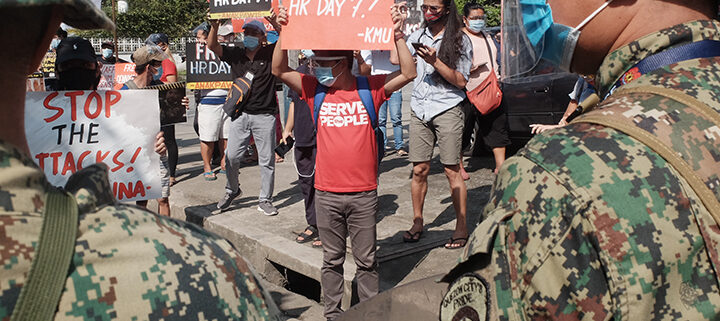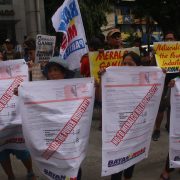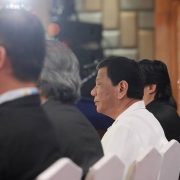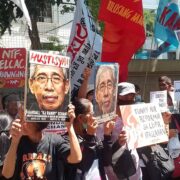Duterte gov’t fails to meet its human rights obligations amid the pandemic
by IBON Media & Communications
The Philippine government is a signatory to the International Covenant on Economic, Social and Cultural Rights (ICESCR). The covenant obliges the government to take measures to prevent or at least mitigate the impact of the pandemic. Its gross failure to do so is leading to unprecedented but preventable suffering for millions of Filipinos.
The country’s poorest and most marginalized are being left behind by the COVID-19 response of the Duterte administration. On the other hand, wealthy creditors are protected and large corporations including foreign investors are getting their profits boosted.
COVID-19 spreading
The Duterte administration’s inability to contain COVID-19 is the clearest sign of its failure to address the pandemic. In Southeast Asia, Vietnam and Thailand show that an effective government response is possible. Yet the Philippines, adjusting for population size, has the second most number of COVID cases next to small city-state Singapore, and the most number of deaths.
The Philippines has over 4,000 cases per million population (more than double the regional average of around 2,000), and nearly 80 deaths per million population (more than triple the regional average of 26). This is despite the longest and harshest lockdowns and quarantine measures in the region.
Emergency aid falling
The government’s refusal to give meaningful aid is causing unparalleled suffering. The latest labor force survey reported 3.8 million unemployed Filipinos and an unemployment rate of 8.7% in October. IBON however estimates the real number to be at least 5.8 million, with an unemployment rate of 12.7%, if those who were forced out of the labor force by the pandemic or discouraged by the obvious lack of work are also counted. Earlier, private opinion surveys already reported 7.6 million families going hungry.
At least 12-13 million Filipino families, or the poorest half of the population, are facing economic distress because of the pandemic and the worst economic collapse in the country’s history. The administration’s Bayanihan 2 however gives emergency aid to at most around 3.3 million families, who are even getting just half as much cash subsidies as supposedly given under Bayanihan 1.
This is because the economic managers refuse to spend on emergency aid for poor and vulnerable families and only allowed a token Php22.8 billion under Bayanihan 2. This is a far cry from the Php238 billion in aid under Bayanihan 1 which has already been used up by beneficiary households. It is even worse in the proposed 2021 national government budget where pandemic-related aid falls to just Php9.9 billion.
As it is, with only nine days left in the effectivity of Bayanihan 2, the social welfare department has only given one-time emergency subsidies to a mere 64,839 beneficiaries at an average of just Php6,720 per family. The labor department meanwhile has only given CAMP support to around 350,000 workers.
The Duterte administration’s so-called emergency assistance is so small that it is just a token measure to give the illusion of responding. Tens of millions of Filipinos are not getting any help causing millions to go hungry and sink deeper into poverty.
Corporate profits rising
The government is also making inequality worse. While millions of poor families are neglected, large corporations including foreign firms are going to get hundreds of billions of pesos in additional profits over the coming years from big corporate income tax cuts.
Disregarding the critical need for revenues to respond to the pandemic, the economic managers pushed their Corporate Recovery and Tax Incentives for Enterprises (CREATE) Act and even dishonestly presented this as a COVID-19 stimulus. This is a willful violation of the obligation to mobilize the necessary resources for responding to serious health and economic distress from COVID-19.
Rights being violated
The proposed 2021 budget also violates human rights. The state has an obligation to devote the maximum available resources to combat COVID-19 and the economic crisis in the most equitable manner.
However, the 2021 budget fails to allocate resources in a way that prioritizes the public health crisis and the economic burdens the poor are facing. The proposed 2021 budget spends less on health and on emergency aid than in 2020. On the other hand, the budgets for infrastructure, military and police, and debt servicing all increase. Next year’s budget does not protect poor and vulnerable groups nor mitigate the impact of the pandemic on them.
The Duterte administration’s contempt for human rights is complete. It violates civil and political rights with its systematic political repression and killings of activists and alleged drug offenders. With its neglectful pandemic response, it also violates the social and economic rights of tens of millions of Filipinos. The country is even further away from the full and equal enjoyment of the social and economic rights enshrined in the ICESCR and even in the 1987 Philippine Constitution. #
= = = = = =
Kodao publishes IBON articles as part of a content-sharing agreement.







